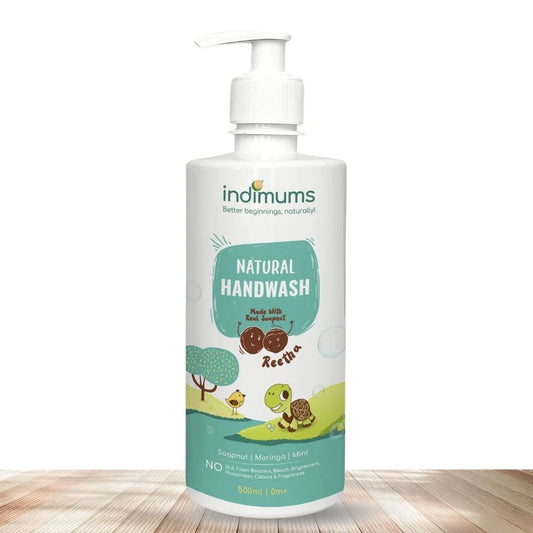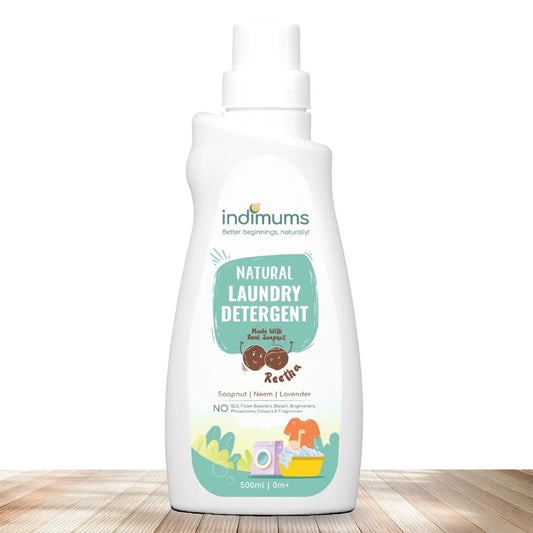Introduction:
Teething is an exciting yet challenging phase in a baby's development. As a parent, it's essential to understand the general age of teething, recognize the signs, and know how to provide comfort and care for your little one during this period. In this blog post, we will explore all aspects of teething and give helpful tips to make the journey smoother for both you and your teething infant.
General Age of Teething:
Teething typically begins around the age of six months, although it can vary from baby to baby. Some infants may start teething as early as three months, while others may not show any signs until they're a year old. Remember, every child is unique, and their teething timeline may differ.
Signs of Teething:

Identifying the signs of teething can help you better understand your baby's discomfort and respond accordingly. Here are some common signs to look out for:
Excessive drooling:
Increased saliva production is a typical sign of teething. You may notice your baby drooling more than usual, which can sometimes cause skin irritation around the mouth.
Irritability and fussiness:
Teething can be uncomfortable, leading to mood changes in your baby. They may become more irritable, fussier, and have difficulty sleeping.
Swollen and tender gums:
Teething puts pressure on the gums, leading to swelling and tenderness. You may notice your baby constantly rubbing their gums or trying to chew on objects for relief.
Loss of appetite:
The discomfort of teething can sometimes cause a temporary loss of appetite. Your baby may show less interest in breastfeeding or bottle-feeding during this period.
Increased biting and chewing:
Teething babies often find relief by biting and chewing on objects. They may try to chew on their fingers, toys, or even household items within their reach.
What to Do:
Seeing your baby uncomfortable can be challenging, but there are several ways you can provide relief and ensure their well-being during teething. Here are some tips to consider:
Offer teething toys:

Provide your baby with safe and appropriate teething toys to chew on. These toys are designed to soothe sore gums and promote healthy oral development. Remember to choose toys specifically made for teething infants and ensure they are free from harmful chemicals.
Keep toys and surfaces clean:

Maintaining a clean environment is crucial during the teething phase. Use a baby-safe floor cleaner like The Indi Mums's Floor Cleaner to keep the floor germ-free, reducing the risk of any infections. Additionally, regularly clean your baby's toys and ensure they are free from dirt, bacteria and most importantly chemicals. You may want to investing in a good natural toy cleaner like The Indi Mums’s Bottle & Toy cleaner liquid, to regularly clean the teething and chew toys.
Provide cool relief:
Cold temperatures can help soothe inflamed gums. You can offer a chilled teething ring or a clean, damp washcloth for your baby to gnaw on. Avoid freezing teething rings as extreme cold can harm your baby's delicate gums.
Gently massage the gums:
Using clean hands, apply light pressure to your baby's gums with your finger. This can help alleviate discomfort and provide temporary relief. Ensure your hands are clean before attempting this method.
Consult your pediatrician:
If your baby's teething symptoms seem severe or persist for an extended period, it's always best to consult your pediatrician. They can offer professional guidance and advice tailored to your baby's needs.
Conclusion:


Teething is a natural process that every baby goes through, but it can be a challenging time for both parents and infants. By understanding the general age of teething, recognizing the signs, and implementing helpful strategies like providing teething toys, maintaining cleanliness with products like The Indi Mums Floor Cleaner & Toy Cleaner and offering soothing relief, you can help your baby navigate




